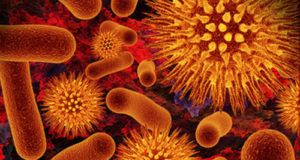
Allow me to make you pause for a second about the richest nation in the world while I list some statistics about its capital. In Washington, DC, women are more likely to die from breast cancer than anywhere else in the US. Mortality rates for cancer in general are higher in DC than in other parts of the country. African American women, which make up a majority of breast cancer patients in DC, are 35 times more likely to die to from disease than White women. While DC is rich with healthcare facilities (there are 11 hospitals and medical centers and many quality cancer treatment services in the City), Southeast Hospital is the only facility remaining in Southeast Washington, DC, where the majority population is African American and lower income.
Why the striking – and almost unbelievable – disparity in accessible medical care? It appears to be as straight-forward as that age-old condition known as the gap between the wealthy and the poor. This situation appears to be widening in DC and is as wide as in any other major US city. The adult populations in DC most likely to be uninsured are poor – and not White. In 2001, Washington, DC had the highest physician to population ratio of any state, but most physicians – particularly medical specialists – do not work in low-income neighborhoods.
Additionally, the issue is not solely African American; the Hispanic population has the highest uninsured rate, being poorer than African Americans or Whites, and demonstrating worse health indicators than both groups. There are few preventive medicine programs to teach people how to stay healthy. Women receive cancer screening far less than they should, lowering the levels of early detection (and therefore better chances at successful treatment). There is often an inherent distrust of the healthcare system on the part of minorities due to historical experiences with, let’s say, less than the best treatment compared to what others might receive. For many the of city’s poorest residents, “primary” care treatment means going to the emergency room to treat an injury or flu.
I heard one well-educated patient with excellent health insurance call her diagnosis of breast cancer an “absolute shock; I was in complete disbelief.” Imagine receiving that diagnosis and also realizing you don’t have health insurance, have no regular doctor and possess little information on healthy living?
Why all the detail about the cancer treatment disparity in Washington, DC? Because there is an innovative and much needed program that is working to assist those underserved cancer patients, and their methods of education and empowerment can certainly also help someone who has cancer, but is not in the most difficult of situations.
Smith Farm Center in Washington, DC
Smith Farm is at the forefront of integrative cancer care and a new holistic medical system. Since 1996, Smith Farm has served cancer patients through its weeklong Cancer Help Program residential retreats. This retreat is modeled on the internationally recognized Commonweal Cancer Help Program, featured in Bill Moyer’s PBS series, “Healing and the Mind”. The retreats are designed for adults and caregivers who are seeking physical, mental, emotional, and spiritual healing as they live with cancer and other serious illness. Smith Farm also has held thousands of programs at its downtown DC location to educate patients. Topics include how to eat well and nutritiously during and after treatment, stress management, relaxation exercises, and pain management – all key wellness techniques for cancer patients who often don’t even hear about them during their mainstream treatment. Mainstream oncology often dismisses such practices as barely making a difference compared to the core treatment options of surgery, radiation and chemotherapy. A lack of control and influence over the process is a key complaint of cancer patients.
Breast Cancer Navigator Program
In the past two years, Smith Farm has worked with the DC Cancer Coalition, Howard University Hospital, DC churches and others to tackle to enormous gap of cancer treatment for DC’s underserved breast cancer patients. Starting at Howard Hospital, Smith Farm’s Breast Cancer Navigator program has assisted women in accessing screening and treatment services; provided on-site information about cancer treatment and culturally appropriate resources; provided wellness workshops on a variety of topics, such as stress reduction and coping techniques (meditation, breath-work and visualization), nutrition, exercise, and survivorship issues; and provided emotional support to individuals dealing with cancer. With the help of the Komen for the Cure Foundation, Lance Armstrong Foundation, and Quality Care Foundation, Smith Farm expects to be able to expand the initiative to assist over a thousand new patients and caregivers in the near future.
Studies of the program demonstrate these aren’t just “feel good” services at the periphery of patients’ core treatments. The program has increased patient compliance rates of treatment, expanded services of the hospital, increased patient knowledge and generated a 97% “usefulness” rating from participants.
Importantly, the Smith Farm’s Breast Cancer Navigator Program provides information that helps patients take control of their treatment process and provides educational tools that enable patients to feel like they can contribute to their own recovery and health. Survey after survey demonstrates that cancer patients of all kinds want this type of information and influence in their own process. Unfortunately, there is still a lack of education, information and support services connected to mainstream treatment. Patients generally head to the Internet to find information, which may be of high quality – or it may be dangerous.
Hopefully, a comprehensive approach to cancer care, which includes various wellness exercises, education and social support, will become the standard – not the exception – in cancer care.

Source by Troy Centazzo
 Vitamin Agent The Health & Naturalistic Source
Vitamin Agent The Health & Naturalistic Source





